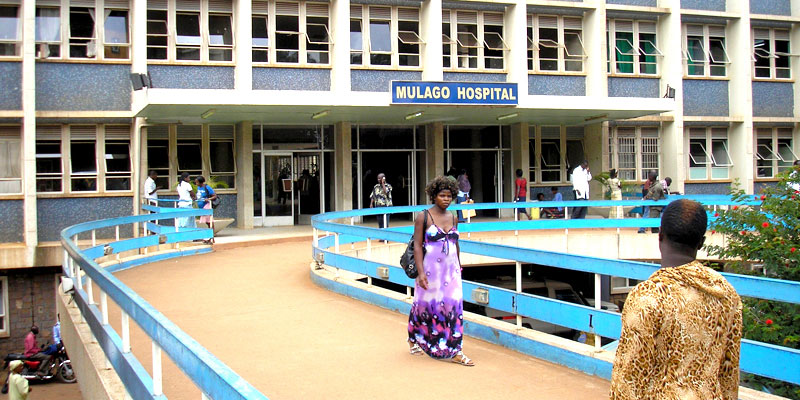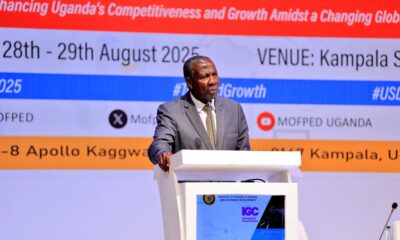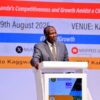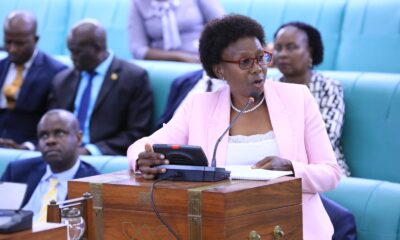Health
Mulago Doctors gang up against bosses
One of Mulago’s senior surgeons has triggered anger and horror reactions among the public by exposing high levels of dysfunction at the national referral hospital, which explains why people lose lives despite the presence of highly skilled health workers.
A post on a WhatsApp group by Dr. William Manyilirah, a senior Cardiothoracic surgeon at Mulago, through which he vents deep frustration about the apparent collapse in the management of the hospital has gone viral. It reveals how the system there allows doctors and other duty bearers to abuse their jobs by skipping work, including in life and death situations such as heart surgeries.
The response by Mulago’s spokesperson Enock Kusasira, when asked by The Sunrise, suggests that Dr. Manyirilah’s comment has had little impact and is likely to change nothing.
Dr. Manyirilah’s posted on a closed WhatsApp group: “Dear colleagues, I don’t normally write on this WhatsApp group, but I’ve been forced to do so. This morning, 26th October, my team and I went to the Main Operating Theatre (OT) of Mulago Hospital Complex to operate on two thoracic cases.
The first patient was supposed to be for thoracic duct ligation + wash out via right thoracotomy and the second case for a chest wall tumour excision and major chest wall reconstruction. On arrival at the OT at about 08h30, we were told that there was no oxygen in the OT. We then decided to borrow oxygen (in cylinder) from 3CTS, our thoracic ward. Then suddenly came another reason to cancel the operations – there was no anaesthetist! Three reasons for lack of anaesthetist(s) were advanced:
1) The senior anaesthetist on duty was “indisposed”, but he promised to send an SHO.
2) A few minutes later we were told that the SHOs supposed to “cover” for the senior were busy attending some research conference and thus could not work with us.
3) And that there were no other anaesthetists to work with us, as there were busy in other Ots!”
He added: “The setup of the Mulago Main OT [operating theatre] calls for a high degree of sacrifice by a right-thinking surgeon (or other staff) to perform surgeries there! The arrangement in that OT goes against most standard operating protocols and good common sense. I’m afraid sometimes I think it takes some degree of insanity to accept to perform specialised surgeries in that OT. Forgive my strong language.
“On some days, if it is not lack of essential supplies, a surgeon has got to literally beg and cajole the anaesthetist or theatre staff to have a case operated on in that Mulago OT. Sometimes it appears as though the surgeon owns or has a special interest in the patient!”
“I have, on several occasions, observed that the staff (especially nurses and doctors) of Mulago Hospital quite often turn a blind eye to problems in their units, reportedly because reporting them would lead to admonition from the hospital administration and perhaps cause loss of employment. This is very disturbing and is a source of despondency among the staff – a recipe for poor service delivery.”
When asked by The Sunrise if the issues raised were being investigated by management, Kusasira responded: “They are not worth investigating. We are interested in addressing possible clashes in theatre schedules. We were already aware that there are some irregularities in terms of duty attendance.”
Kusasira added that Dr. Manyirilah’s issues were deep rooted ethical problems among medics.
He noted that Mulago’s management has previously attempted to take disciplinary measures against absconding medics, but has faced resistance from medics who gang up to frustrate the disciplinary actions.
“William [Manyilirah] should know that some of his colleagues have double standards. They rise up to defend their errant colleagues when management tries to take disciplinary action,” Kusasira said.
Although Kusasira has defended Mulago’s record as much more improved since 2011, several experiences by many people about Mulago suggest that similar cases of indiscipline and abscondment from duty have been the order of the day.
Dr. Muniini Mulera, writing in the Daily Monitor, recites a similar incident when in 2012, a Ugandan born senior neurologist, one Dr Joseph Buwembo, then an Associate Professor of Neurosurgery at the University of Saskatchewan, Canada, visited Uganda to carry out a free operation on a child but encountered similar problems with anaesthetists.
Kusasira repeated the call by some from the medical fraternity for the re-introduction of cost-sharing, as a means of raising more money to hire more staff. He blames members of the general public for demanding free health care, instead of contributing towards meeting the high cost of health care.
He boasted that the ongoing renovation of New Mulago, expected to be complete by January 2019, will go a long way in improving matters.
“We are planning to recruit new anaesthetists and other medical experts that will be in charge of the 17 new theatres that have been created,” Kusasira said.
For Mulera and perhaps many other Ugandans, Dr. Manyilirah’s issues require a thorough investigation of the operations of the hospital. Whereas medical doctors often cite the limited facilities, and low pay in government hospitals, critics argue that there is a systemic lack of accountability within the entire medical profession that gives medical workers lee way to get away with murder and other lifelong health complications arising from doctors’ negligence.
Comments



























